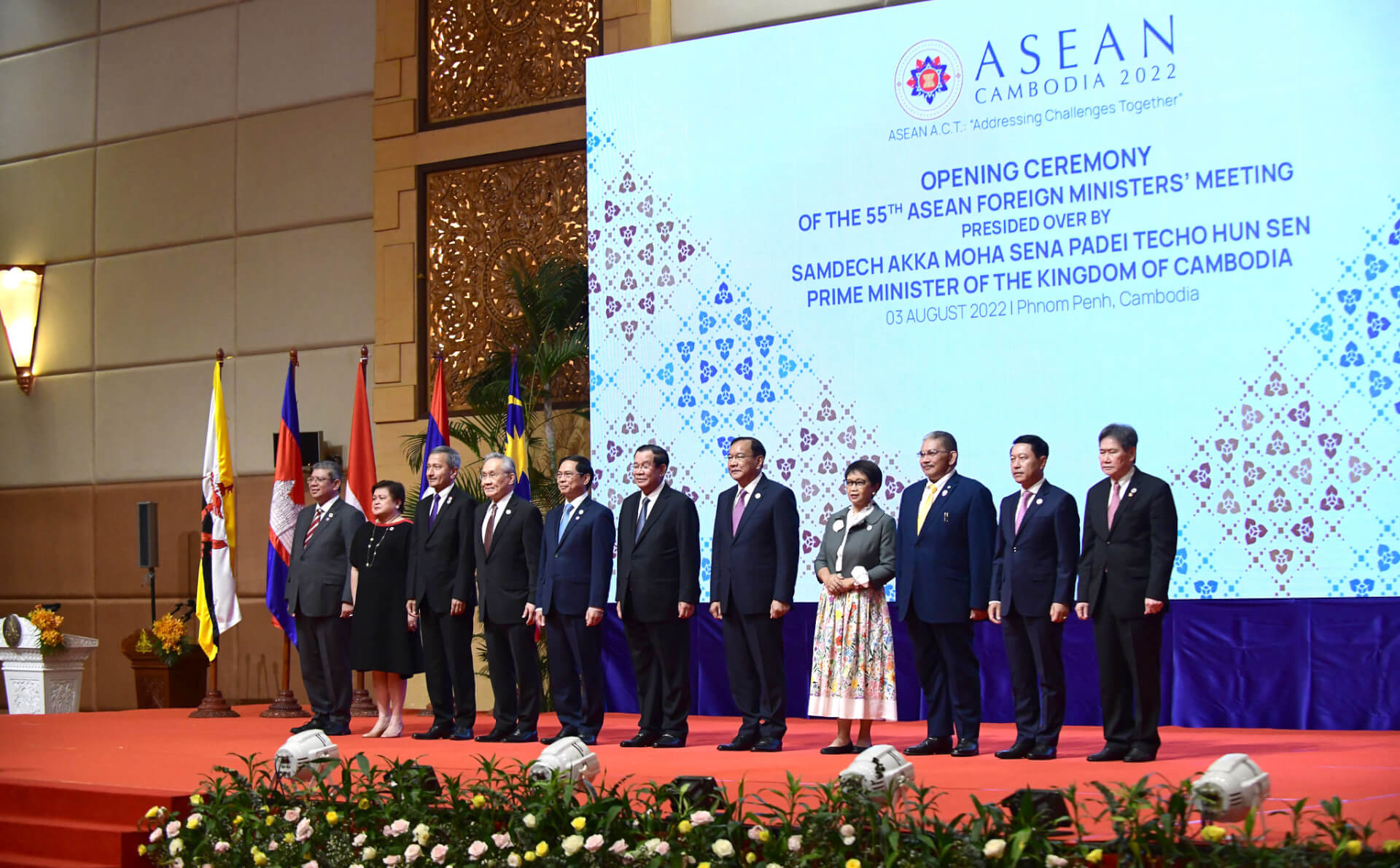Association of Southeast Asian Nations (ASEAN) foreign ministers (FMs) said on Thursday after their meeting in Jakarta that they are now “even more determined” to help Myanmar through its political crisis.
The meeting, which was held at the ASEAN Secretariat in the Indonesian capital of Jakarta, was once again marked by the absence of a representative from Myanmar. Although a non-political representative has been invited to the November meetings, the grouping has received no response.
Cambodian FM Prak Sokhonn, who chaired the meeting, said that the organisation’s inability to solve the crisis was not due to its own inaction but due to the “complexity” of the situation.
.@FortifyRights for 1 has called for "failed" @ASEAN 5-point plan to be junked. @Patrick_Phongsa says "longer #ASEAN takes to effectively respond to the human rights catastrophe unfolding in #Myanmar, the more damage is done". https://t.co/vf9yoDkIMT #WhatsHappeningInMyanmar pic.twitter.com/ZB8QTJJmwh
— May Wong (@MayWongCNA) October 27, 2022
“Undoubtedly, the situation on the ground remains critical and fragile, and this is not due to a lack of commitment or effort on the part of ASEAN and the Special Envoy, but because of the complexity and difficulty of Myanmar’s decades-long protracted conflicts, which has been further exacerbated by the current political crisis,” the Cambodian Ministry of Foreign Affairs and International Cooperation said in a statement.
Keeping this in mind, Cambodian Foreign Minister Prak Sokhonn said, “ASEAN should not be discouraged, but even more determined to help Myanmar to bring about a peaceful solution.”
#Myanmar #military says @ASEAN will be "inserting additional pressure by setting a timeframe" for 5-point plan & will create "more negative implications" doing so. It declined to attend Oct 27 special @ASEAN meeting on crisis, rejecting talk outcomes #WhatsHappeningInMyanmar https://t.co/VbQbAnkNsp pic.twitter.com/EEAUfcNrf9
— May Wong (@MayWongCNA) October 27, 2022
Members unanimously agreed that the ASEAN’s decision-making with respect to Myanmar would be based “on consultation and consensus, and the fundamental principles stipulated in the ASEAN Charter.” The FMs also reaffirmed the “importance and relevance” of the Five Point Consensus (5PC) that they proposed in April and “underscored the need to further strengthen its implementation through concrete, practical and time-bound actions.”
“The time to act is now, and ASEAN needs to act together with respect for sovereignty and territorial integrity and the interests of the people of Myanmar at the core,” the statement read.
The ministers acknowledged that “all concerned parties in Myanmar have a stake in ending or worsening the current political crisis that has caused the loss of many lives, severe destruction to the country, and long-lasting effects on the economy” and that “it is of utmost necessity and urgency that a dialogue process shall commence the soonest possible.”
Just prior to the ASEAN’s Thursday meeting, Daniel Kritenbrink, the top diplomat from the United States (US) for East Asia, issued “a very forceful call to do more to apply pressure to the (junta) regime.” “We are not going to sit idly by while this violence continues; we’re not going to sit idly by while the junta prepares for what will be completely fake and sham elections that they talk about holding next year,” he said.
"Instead of the wishy-washy language contained in the Chairperson's statement, ASEAN needs to get tough by establishing clear, time-bound human rights benchmarks on Myanmar" says @hrw, including releasing political prisoners & ceasing attacks on civilians https://t.co/08hXByiYsZ pic.twitter.com/hSeIWBAOlS
— Phil Robertson (@Reaproy) October 28, 2022
Kritenbrink’s comments referred to a recent move by the Myanmar junta’s leader, General Min Aung Hlaing, to legally consolidate power in the future by replacing the country’s top officials with new figures in the military-backed Union Solidarity and Development Party (USDP).
Observers have warned that the new high-ranking appointments are people close to the junta leader. They are also of the view that the latest party reforms were possibly made with the view of the upcoming elections that are expected to be held in 2023. In order to gain legitimacy by winning the elections and becoming the country’s democratically elected president, the army chief would require the support of the party.
Meanwhile, Myanmar’s junta government warned on the same day that any pressure from ASEAN to institute a timeframe on the peace plan would result in “negative implications.”
Since the coup last February, it is estimated that more than 2,000 people have been killed, 14,000 arrested, and over 700,000 displaced. Meanwhile, ousted democratic leader Aung San Suu Kyi currently faces nearly a dozen cases that carry a combined maximum sentence of more than 100 years in prison.

